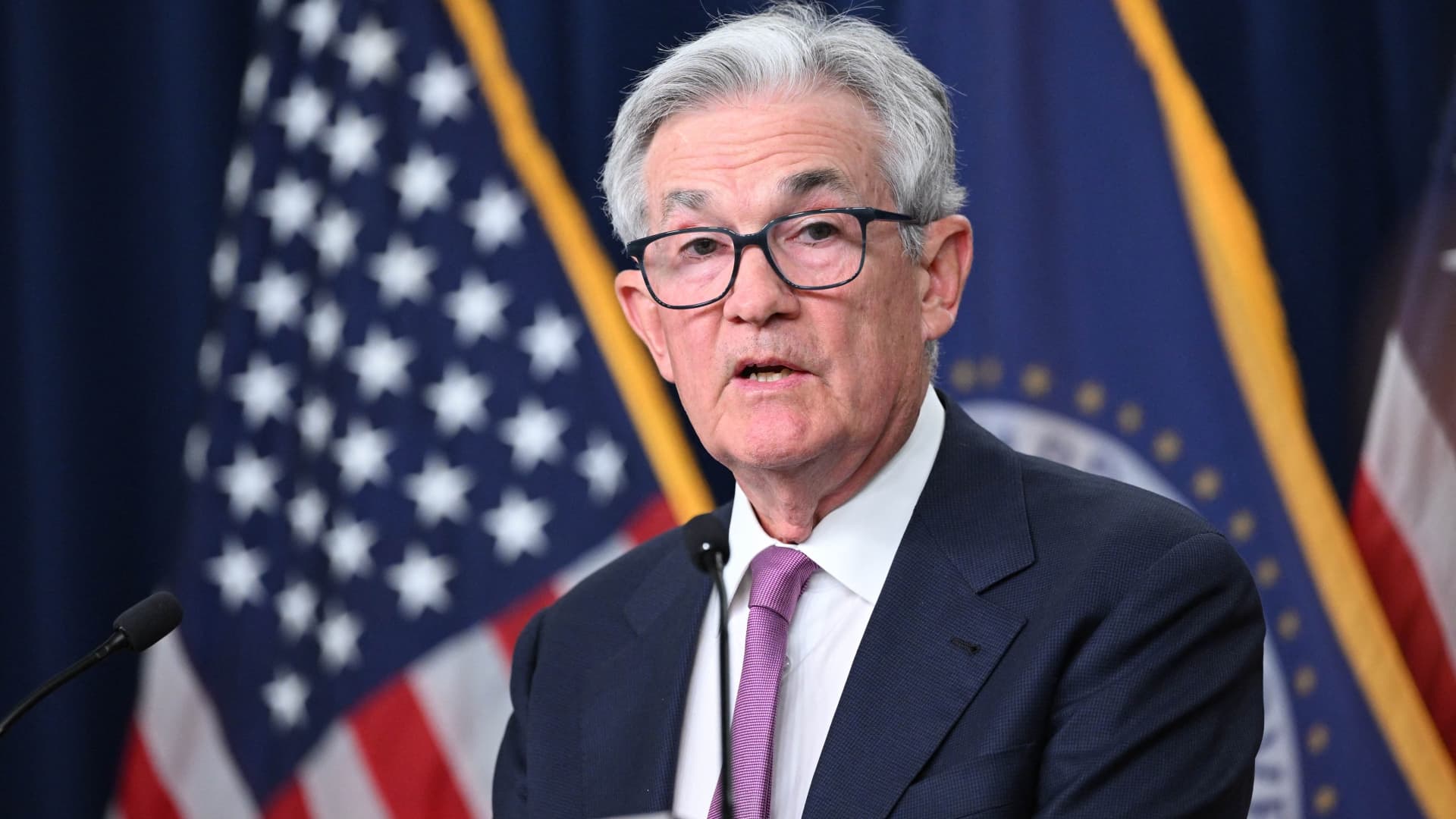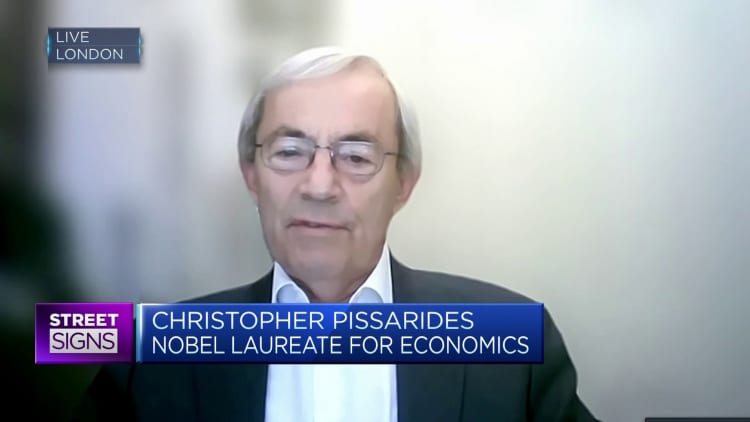Nobel Prize-winning economist says there’s no need for the Fed to keep hiking interest rates


Nobel Prize-winning economist Christopher Pissarides believes there’s no need for the Federal Reserve to keep raising interest rates in the coming months, saying policymakers at the U.S. central bank should instead look to take a breather in the battle against inflation.
His comments come shortly after data on Wednesday showed U.S. inflation fell sharply to a two-year low of 3% in June. The reading appeared to underscore the Fed’s relative success in containing price rises following a rapid increase in interest rates.
The Fed has previously signaled its intent on pushing ahead with additional monetary policy tightening.
“It takes time for these to have their full effect, so given that inflation is moving in the right direction, that interest rates are high, I would just wait and see what happens next,” Pissarides, a professor at the London School of Economics, told CNBC’s “Street Signs Europe” on Thursday.
“I don’t expect anything to happen to make them want to increase interest rates more, but I would definitely wait this time,” he added.
Pissarides was jointly awarded the Nobel Memorial Prize in Economic Sciences in 2010 for his work on the economics of unemployment.
Federal Reserve Board Chairman Jerome Powell speaks during a news conference following the Federal Open Market Committee meeting, at the Federal Reserve in Washington, DC, on June 14, 2023.
Mandel Ngan | AFP | Getty Images
The U.S. central bank held its key borrowing rate steady in a target range of 5% to 5.25% last month, but policymakers at the meeting indicated the likelihood of half a percentage point more of additional tightening before the end of 2023.
Fed Chair Jerome Powell has repeatedly reinforced this message, saying at a forum in late June that he expects multiple rate hikes ahead, possibly at an aggressive pace.
“Inflation is coming down, the labor market is not as tight as it was — or at least not getting tighter — so I don’t think there will be inflationary pressure coming from that direction,” Pissarides said.
“On balance, I don’t think there will be a need for further hikes in the [United] States at least, Europe might be a different story but the [United] States not.”
‘We need clarity’
Pissarides acknowledged his call for a pause stood in contrast to the view of some economists and investors, but said “that’s what I would do if I were there.”
Investors see a more than 92% chance of a 25-basis-point hike at the end of the Fed’s two-day policy meeting on July 26, according to the CME’s Fedwatch tool, before cuts are seen from early next year.
Asked whether the primary reason the Fed may consider further raising interest rates would be to push inflation down toward 2% sooner rather than later, Pissarides replied, “It could be, but you see here we need more patience.”
He added, “You were absolutely right when you said that the last bit is always more difficult than the beginning, especially when you are very high, it is easy to come down quickly.”
Pissarides nevertheless said that inflation persisting at or around 3% — rather than the Fed’s target of 2% — is not likely to cause problems for the U.S. economy, adding that this is “too small a difference” in the inflation rate.
“Be patient. Businesses will react better if they think that eventually we are going to get there, and they will pursue their longer-term investment plans. And we’ll get there even faster if that doesn’t do anything,” Pissarides said.
“We need clarity,” he continued. “They could say we’re seeing a softer landing coming, and we’re seeing delays in going down to 2% because the last bit is always difficult, but we have done well so far and let the economy take its course. It is a free market, well-functioning economy.”









